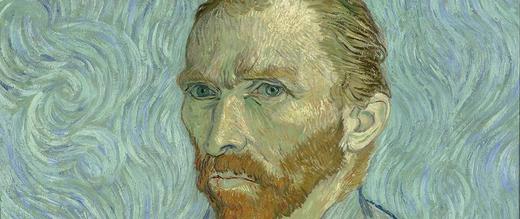The views expressed in our content reflect individual perspectives and do not represent the authoritative views of the Baha'i Faith.
Artists sometimes tell us we are completely insane, or, more politely, that we are working against our own best interests.
But among artists, especially, it seems, among some modern poets who indulge in exploring the interior of themselves for our benefit, the so-called confessional poets may have the most intense questions for us. And among these confessional poets are a number who seemed bent on the art of dying—or at least who devote a significant portion of their art portraying their preoccupation with the desire to achieve non-existence.
Whether we believe they have come upon truths so painful that they prefer leaving this life rather than enduring an out-of-kilter world, or whether they are simply too delicate or maimed to withstand the onslaught of inner angst, these poets really do want to die. They aren’t simply drawing attention to themselves. They sincerely want to die, and they feel it important to let us know what that feels like, possibly so that others who experience the same emotion will not feel so totally isolated or guilty.

Silvia Plath
Immediately we may think of Silvia Plath, who in 1963 stuck her head in a gas oven, or John Berryman who in 1972 jumped from a bridge in Minneapolis, or Anne Sexton who in 1974 turned on the car motor in her closed garage.
If we equate the art of living with the art of dying, then surely something is amiss here. One revealing study even compared and contrasted the characteristics of the work done by poets who committed suicide with the work of their contemporaries, also confessional poets, who did not.
What the research concludes is not that the poets who opted for suicide were more in touch with and dismayed by the deterioration of morality in society than their contemporaries—but rather that from the beginning, these personalities demonstrated a pre-occupation with themselves. This research also notes that even the language the suicidal poets employ alludes to their sense of being unable to communicate their inner turmoil to others, an odd dilemma for artists whose medium is highly-nuanced language.
This observation brings me back to my brother’s conversation with his friend about our desire for happiness versus our desire for knowledge about reality. The two are hardly antithetical or mutually exclusive.
In short, most of these artists killed themselves because they had what we now recognize to be a physiologically-caused disease called clinical depression, not because they were simply too wimpy to abide the whips and scorns of time or a world in disarray. Depression is not what made them write poetry, nor does mental illness become the primary impetus for any other sort of artist. And yet, for a while in the later modern age of the 1960’s and 1970’s, some romanticized self-slaughter (currently manifested, perhaps, in self-abuse like “cutting” and “piercing”), as if self-loathing and total pessimism could make one understand life (and death) and could forge one into a competent artist (or pop star).
No doubt being acutely aware of their own problems and those of the world helped trigger the depression in the Confessional Poets—but their despair was the result of physiological pathology, not the result of an artistic temperament or a considered assessment of reality. Likewise, their talent did not derive from their disease. Their artistic vision understandably focused on the most powerful feelings and experiences they had undergone—their own inner struggle with the disease that plagued them, a war which no one else could completely comprehend nor could help them abate.
Their contemporaries, also capable talents who wrote confessional poetry, had no such disease and thus tended to focus their art on themes of the macrocosm, the exterior world, external themes filtered through the self—but not ending with the self. For these poets of the confessional bent, the self was a point of view, a camera lens, not the primary object of inquiry and study.
Sylvia Plath did indeed make an art of dying, but her sense of dying—or living with the desire to die—did not make her a great artist, which she clearly already was. The power of her art derives from her genius with language and grasp of symbol and image.
The fact is that plenty of people take their own lives without demonstrating any artistic capacities or temperaments. But the very nature of clinical depression is such that one who experiences it cannot imagine what the “self” might feel like without the depressive affect, nor can one in such a condition even remember having been any other way.
Conversely, when a depressive emerges, even temporarily, from that state (the active stage of the disease), it is difficult for them to recall or imagine how wretched and totally debilitating this chemical imbalance can render the total psyche, even if, as this passage from Baha’u’llah notes, the soul itself is ultimately not maimed by this experience:
Know thou that the soul of man is exalted above, and is independent of all infirmities of body or mind. That a sick person showeth signs of weakness is due to the hindrances that interpose themselves between his soul and his body, for the soul itself remaineth unaffected by any bodily ailments. – Baha’u’llah, Gleanings from the Writings of Baha’u’llah, pp. 153-154.
This aspect of the disease also helps explain why depression is so totally isolating and encompassing, because it is quite literally impossible to convey to someone who has not experienced this affective state of being what it feels like. If there is no “comparable” condition, then the depressive is not only stuck suffering the existential despair, panic, and desperation that depression can induce, but also completely unable to convey to anyone else exactly what is wrong.
I once had a psychiatrist friend tell me that if I as a writer could produce a verbal description of depression from the subjective point of view of a depressive, I could make a million dollars. I responded, “You’ve never experienced depression, have you?”
He had not, and that to him was a serious handicap in treating his patients. Here was this terrible disease so severe as to cause death—which meant it was at least as severe as heart trouble, cancer, or any other lethal disease. And here was this well-trained physician who was trying to understand and treat a disease that could not be seen on an MRI, could not be detected by any means other than the patient’s subjective articulation of an emotional state of being, a condition which defies language or comparison.
So while my brother’s answer to his friend might have been that he would always prefer to be in touch with reality to the option of living a blissful but deluded existence, I dare say that, given the choice, my brother would have chosen to be less capable and intelligent if faced with the alternative of having to endure a moment-to-moment existence of unconquerable depression.

















Comments
Sign in or create an account
Continue with Facebookor